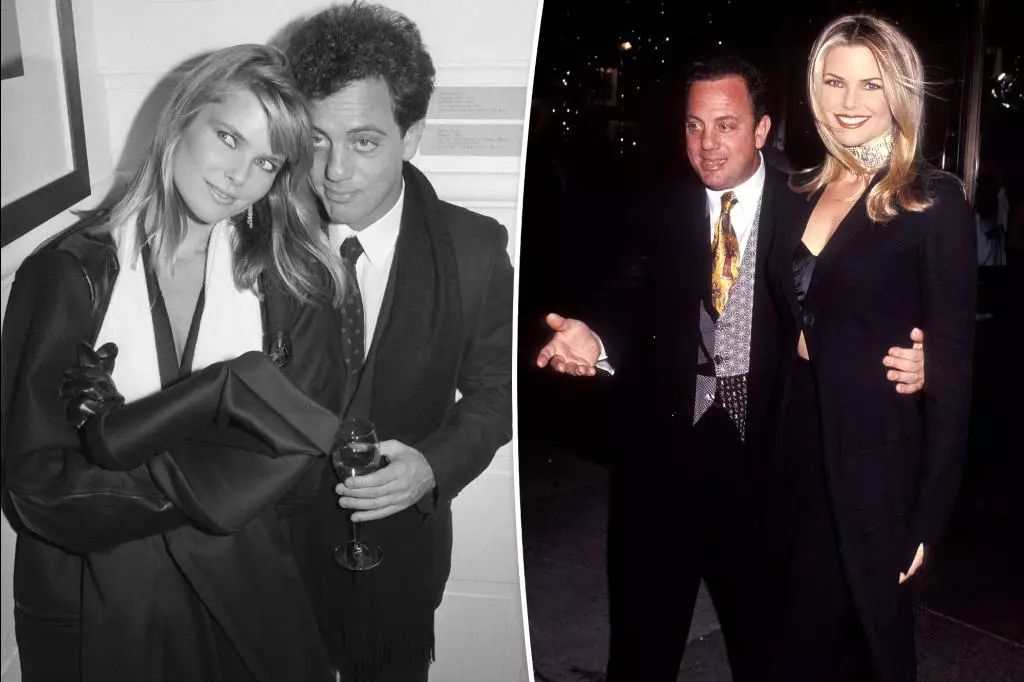In a vivid recounting of her past, supermodel Christie Brinkley has opened the floodgates to a tumultuous chapter of her life in her memoir, “Uptown Girl.” This candid narrative serves as a powerful exploration of love entwined with struggle, particularly as it delves into her relationship with legendary musician Billy Joel. Brinkley uncovers the deeply personal conflicts that arose due to Joel’s battles with alcoholism, a topic she admits felt too sensitive to touch upon for many years. The choice to reveal those instances—such as the time Joel infamously devoured spaghetti straight from the stove—speaks volumes about the chaotic undercurrents of their relationship and serves as a lens through which we can examine not just celebrity struggles but the universality of pain, love, and the pursuit of understanding.
Brinkley’s admission of her hesitancy to speak candidly about Joel’s issues resonates with many who find themselves in similar situations. Unpacking the notion of hidden struggles becomes a vital element in understanding the complexity of human relationships, especially when one partner grapples with addiction. Her efforts to keep their family’s problems out of the limelight, fueled by a desire to protect both her loved ones and herself from public scrutiny, are indicative of the isolation that often accompanies the loved ones of alcoholics. This reality shines a stark light on the loneliness that can pervade such relationships.
The Pain of Silence
The model’s assertion that she never divulged details about Joel’s alcoholism, even to her closest friends, paints a poignant picture of emotional turmoil. This silence not only encapsulates personal sacrifice but also reflects a broader social reluctance to confront addiction openly. Brinkley described a raw intersection of love and fear, where feelings for Joel oscillated between deep affection and apprehension for the man she loved when his addiction took the driver’s seat. This constant push-and-pull resembles a powerful metaphor for love itself—one that is often accompanied by trials and tribulations that can be both devastating and transformative.
Brinkley’s commitment to remain supportive throughout their eleven years together underscores an admirable but often challenging allegiance to a partner battling their demons. Her acknowledgment that alcoholism is a disease recognizes the complexities of addiction and the dire struggle that individuals face. However, this loving dedication also highlights the emotional toll it takes on the partner who tries to hold everything together while feeling increasingly alienated—the unsung hero in the saga of addiction.
A Necessary Break
Brinkley ultimately ended her marriage to Joel in 1994, not just out of necessity but also as an act of self-preservation. Her articulation that Joel’s drinking “was bigger than the both of us” captures the essence of an inescapable truth: love alone can sometimes be insufficient to salvage a relationship. Their breakup marked not just a pivotal moment in her life but a significant turning point that offered Brinkley a path to regain her own identity, separate from the chaos of addiction.
The repercussions of their relationship endure, however, as Brinkley navigates co-parenting their daughter, Alexa Ray Joel, and maintains a friendship with her ex-husband. The dynamics of their post-divorce relationship reveal how healing can emerge from pain, evoking a sense of maturity and understanding that often follows the hardest battles. Her reflections about maintaining a friendship showcase strength and willingness to keep familial ties intact, demonstrating that love can adapt and evolve even when romantic relationships falter.
The Broader Reflection
As Brinkley shares her story, it becomes clear that her experiences are emblematic of a more extensive narrative involving addiction, love, and the challenges of maintaining relationships in such tumultuous circumstances. It forces society to confront its own discomfort surrounding these issues—a conversation desperately needed in today’s world. This exploration may resonate with those grappling with similar conditions or those who have been affected by a loved one’s addiction, providing a reminder of the nuances that accompany such relationships.
This memoir is not just about one woman’s journey; it serves as a mirror reflecting the struggles of many. By venturing into this painful territory, Brinkley is not merely recounting her past but preparing the way for open dialogues about love, resilience, and recovery. It’s a testament to the idea that acknowledging our vulnerabilities can lead to profound insights and perhaps even pave the path to healing for others caught in similar cycles of love and despair.

